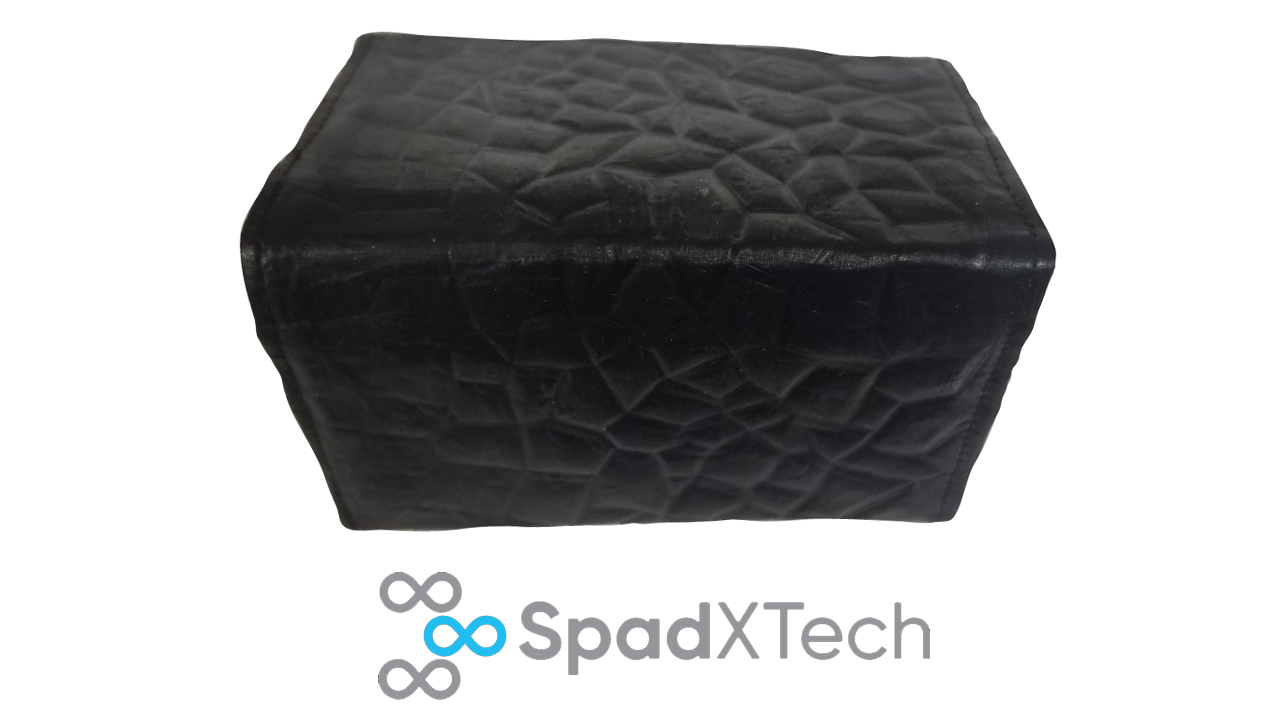SpadXTech: Success Story
Recipient of the FORGE Product Development Grant, engineering versatile materials for a greener future

Fermenting a better leather alternative
Lots of people got into fermentation at the beginning of the pandemic, but SpadXTech co-founder Dr. Lina M. González took it a step further. While growing kombucha, a fermented tea drink in her apartment for its detoxing capability, she grew interested in it for other purposes as well. Kombucha’s jellylike mat of bacteria and yeast inspired her to engineer bacteria to make a cellulose material. That was the beginning of SpadXTech.
González said, “I was motivated to start the company to have a bigger impact on the world.” Publishing her academic research didn’t feel like enough. She wanted to create products that would physically help the environment.
She also wanted her company to be resilient, so she named SpadXTech after the spadix, a part of the flower that blooms on the hardy philodendron plant. Despite launching in 2020 when it was hard to find people willing to work on product development in-person, SpadXTech survived. Today, the company develops biomaterials as sustainable alternatives for leather, insulation, and plastic films. SpadXTech’s leather alternative replaces leather and polyurethane “pleather.” The leather industry uses 400 billion liters of water annually and creates toxic waste, so leather was an obvious target for this cleantech startup.
“Instead of plastics or animals, we’re using microbes and sugar,” González said. “The microbes eat the sugar and produce cellulose polymer, which stores carbon. The process is so sustainable that, if we use non-emitting sources of energy to power our instruments and incubators, we can produce a carbon-negative material!”
Testing and scaling production with a FORGE grant

SpadXTech recently won a FORGE Product Development Grant. The startup has had an office at FORGE’s sister organization Greentown Labs since becoming one of the inaugural members of Greentown’s Advancing Climatetech and Clean Energy Leaders Program (ACCEL), but this is its first time working with FORGE.
González applied for the grant because SpadXTech had the technology proven, but needed to increase its production capacity to accelerate their development. The startup has produced small amounts of its leather-like material but needs to try manufacturing larger quantities.
“The grant will allow us to buy a small bioreactor so we can start producing larger batches,” González said. “We’ll go from a half liter flask to a five-liter fermenter. That lets us troubleshoot problems that might arise in mass production.”
SpadXTech will also use the funding to test its leather alternative’s durability. Abrasion and Bally flex test results will help SpadXTech show potential customers the material can hold up to wear and tear. González has successfully machine-embroidered the material – one of the toughest processes a textile can go through. And a wallet she made from the material in October 2022 has withstood daily wear.
“The wallet still looks great!” González said. “I carry it everywhere.”
Looking forward: disrupting other industries
SpadXTech’s base material is so versatile that the company plans to expand to other industries. The next challenge is insulation materials.
Cheap insulation materials like fiberglass and mineral wool will be hard to compete with in the price-conscious construction industry, but González is optimistic. “As we scale, which the grant will help with, we can lower the cost of manufacturing our product and make it more competitive,” she said.
Since at least a quarter of building-related emissions come from embodied carbon (greenhouse gas emissions associated with manufacturing, construction, and transportation of materials), a product like SpadXTech’s insulation can make a big difference. Choosing SpadXTech’s insulation on a building project could reduce the building’s embodied carbon by 16 percent!
By the Numbers
- SpadXTech has won $370K in non-dilutive funding
- By 2050, the startup estimates its technology can save more than 600 metric tons of CO2 equivalent in industries such as textile, plastics, construction, and transportation
